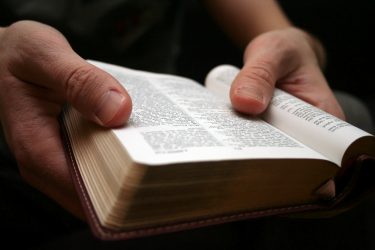God established the office of elder in order to help Moses govern Israel while the nation was traveling in the wilderness: “The LORD therefore said to Moses, ‘Gather for me seventy men from the elders of Israel, whom you know to be the elders of the people and their officers…and they shall bear the burden of the people with you, so that you shall not bear it all alone’,” (Numbers 11:16, 17).
The office of deacon was established in the early days of the Christian church. When the number of converts began to increase, some Hellenistic Jews complained that the native Hebrews’ widows were receiving more support and food than were their widows. The apostles then resolved that seven men of good reputation be selected. These men were to distribute necessities to the needy. The term “deacon” means “servant.” Stephen was one such deacon. (Acts 6:1-5)
In I Timothy 3:1-12, the qualifications for church elders and deacons focused on their characters and behaviors. Briefly, both elders and deacons should be: “above reproach, faithful to his wife, temperate, self-controlled, respectable, hospitable, able to teach, not given to drunkenness, not violent but gentle, not quarrelsome, not a lover of money.” Their families and households were to live according to God’s principles and to be beyond reproach. Elders needed also to be good teachers. Thus church leaders were to exemplify patterns of Christian living. The elders were to serve the church as spiritual leaders, while the deacons were to attend to the physical needs of the people.
Please note: Those who would fill these positions were placed there through the vote of the congregation. Acts 14:23, “And when they had ordained them elders in every church, and had prayed with fasting, they commended them to the Lord.” Strong’s Greek Concordance explains that the Greek word for “ordained” is “χειροτονέω (cheirotoneo)…to be a hand-reacher or voter (by raising the hand).” There was no central church government which would choose and place elders into congregations. Each congregation, itself, voted by raising their hands to determine which Christian men should become their elders and deacons.
With respect to women, the early churches also had deaconesses. Romans 16:1 calls Phoebe a “servant,” and the Greek word for servant is “deacon.” But there is no mention of women ever being made elders or overseers. To the contrary, Paul is explicit when he states: “But I do not allow a woman to teach or to exercise authority over a man, but to remain quiet,” (I Timothy 2:12); see also I Corinthians 14:34. Godly Christian women certainly had their hands full attending to the needs of their own families as well as to those of the other disadvantaged church members. It is still so today!











